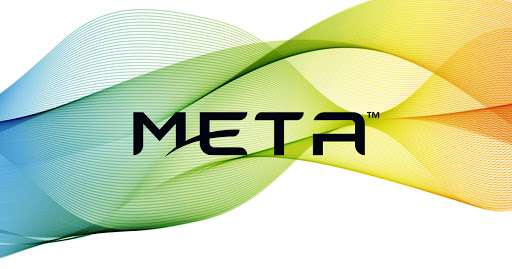Atlantic Canada has minted its first publicly traded unicorn: Dartmouth’s Metamaterial Inc.
The company began trading on the Nasdaq stock exchange Monday thanks to a reverse acquisition of Texas-based Torchlight Energy Resources. By the close, Meta boasted a market capitalization (the total value of its shares) of about US$2.2 billion, or more than C$2.7 billion.
The deal is part of a trend of Atlantic Canadian innovation companies raising money from public markets. Innovacorp Vice President of Investment Andrew Ray, whose venture capital fund was Meta’s first institutional investor, said in an interview that the company raised about US$160, or C$198.1, million from the listing. That makes it the largest stock market capital raise ever for a startup in the region.
Entrevestor revealed Friday that innovation-driven companies in Atlantic Canada had raised C$243 million in capital so far this year, and the Meta listing drives that figure up over C$400 million.
In the leadup to the merger, Torchlight shares rose from under US$3 to about US$14 in a flurry of retail trading activity that saw some investors try to create a “short squeeze” -- the process of driving up a company’s share price with the aim of forcing short sellers to buy back their shares and propel the price even higher.
Read our Recent Report on Meta Entering the Geothermal Market
Meta produces materials that alter light, either by magnifying, repelling or filtering it. The company is best known for its metaAIR venture with Airbus, which is producing a transparent covering for airplane cockpit windows that can filter out laser attacks. It was already trading on the Canadian Securities Exchange, but its valuation now dwarfs anything it previously achieved.
"After ten years of scientific discovery and application development, Meta is now the first Nasdaq-listed metamaterials company, joining the world's premier exchange for technology companies," said Meta Co-Founder and CEO George Palikaras in a statement. "We are very excited to showcase how metamaterials ‘go beyond' conventional materials and chemistry, to offer new and highly sustainable solutions with semiconductor precision, at kilometer scale."
The statement added that the company now has $160 million in cash on its balance sheet and virtually no debt.
Innovacorp, Nova Scotia’s venture capital Crown corporation, invested $3 million in Meta in 2015.
Ray said that Innovacorp’s status as a major shareholder means securities law prevented him from saying whether his fund plans to cash out any of its position. But he added that the new market cap is in line with what he had hoped for from the company.
“The space they're in and the opportunity that's present in the market suggested that it had that potential to be a unicorn or to be a billion dollar-plus company,” he said. “What I’d say is exciting is that, from my mind, the market has sort of caught up to that same expectation.
“It’s one thing for us to believe a company is great and looks like it has huge potential. It's another for... independent third parties in the market in general to share that same view.”
Meta is Atlantic Canada’s second confirmed unicorn, after St. John’s cybersecurity firm Verafin, which was sold to Nasdaq for US$2.75 billion last November. Earlier this month, Fredericton- and Miami-based Introhive also announced a mammoth $122 million Series C funding round that could place it in similar territory, although it refused to disclose the valuation at which it had raised money.
In 2020, Atlantic Canadian startups raised about $65 million from stock markets. The Meta deal means that number has already nearly tripled for 2021.
Ray said public markets are emerging as an increasingly viable fundraising option for Atlantic Canadian companies, with other startups seeking Innovacorp’s guidance in pursuing stock market dollars.
“I've already had conversations with one of our portfolio companies, who are asking questions about, ‘Hey, this is a super interesting play,’” he said. “And we have other companies who are looking at doing similar sorts of things and learning from this experience.
“We've had a lot of learning over the last year with Metamaterial, with them on the CSE (Canadian Securities Exchange) and with them now on to the Nasdaq. And that's going to make it easier and a more viable option for our portfolio companies to raise money.”










